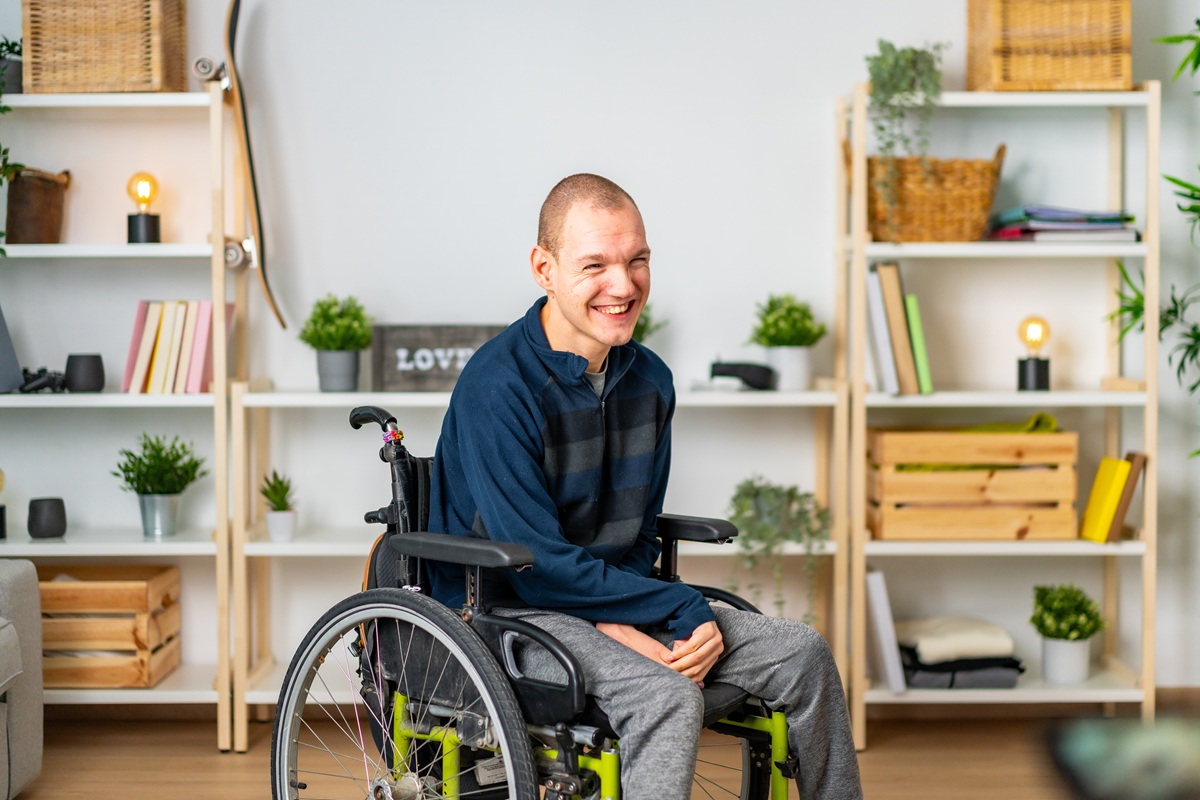Finding the right place to call home is a fundamental human need. For individuals living with disabilities, this process can present unique challenges and considerations. Navigating the world of suitable housing options for those with disabilities can feel overwhelming, but it doesn’t have to be. This comprehensive guide is designed to equip you with the knowledge and resources you need to make informed decisions and find a living situation that truly supports your independence and well-being. We’ll explore various aspects of disability housing, from understanding your needs and exploring different housing models to navigating funding options and finding the right support services.
Imagine a home that not only meets your physical needs but also empowers you to live life to the fullest. That’s the promise of accessible and supportive living. Whether you’re seeking greater independence, a more social environment, or specialised care, understanding your options is the first step towards creating a home that truly feels like your own. Let’s delve into the world of disability housing and uncover the possibilities that await.
Understanding Your Needs and Preferences
Before embarking on your housing search, it’s crucial to take a step back and honestly assess your individual needs and preferences. What are your priorities when it comes to housing? What kind of support do you require to live comfortably and safely? Asking yourself these questions will help you narrow down your options and focus on the types of housing that are most suitable for you.
Assessing Your Support Needs
Consider the level of support you require with daily tasks such as personal care, meal preparation, medication management, and household chores. Do you need 24/7 care, or are you relatively independent and only require occasional assistance? Identifying your support needs will help you determine the appropriate level of care and supervision that your housing should provide.
Identifying Your Lifestyle Preferences
Think about your lifestyle preferences and what you value in a home environment. Do you prefer a quiet and secluded setting, or do you thrive in a vibrant and social community? Are you looking for a home with specific amenities, such as a garden, a swimming pool, or access to public transport? Your lifestyle preferences will play a significant role in shaping your ideal living situation.
Considering Your Budget
It’s also important to consider your budget and how much you can realistically afford to spend on housing. Explore different funding options, such as the National Disability Insurance Scheme (NDIS), and determine what financial support you may be eligible for. Understanding your budget will help you narrow down your options and avoid financial strain in the long run.
Exploring Different Disability Housing Options
Once you have a clear understanding of your needs and preferences, you can begin exploring the various disability housing options available. Each option offers a unique set of benefits and drawbacks, so it’s important to carefully weigh the pros and cons of each before making a decision.
Specialist Disability Accommodation (SDA)
Understanding the landscape of specialist options for disability accommodation is vital for those with high support needs. SDA housing refers to housing that is specifically designed to meet the complex needs of individuals with significant disabilities. These homes often feature specialised modifications and assistive technology to promote independence and safety. SDA may include features such as wheelchair accessibility, ceiling hoists, and sensory rooms.
Supported Independent Living (SIL)
SIL provides individuals with disabilities with the opportunity to live independently in their own homes, with varying levels of support from trained support workers. SIL can range from a few hours of support per week to 24/7 care, depending on the individual’s needs. This option allows individuals to maintain their independence while receiving the assistance they need to manage their daily lives.
Group Homes
Group homes offer a shared living environment for individuals with disabilities, typically with 24/7 support from dedicated staff. These homes provide a structured and supportive environment where residents can develop social skills, participate in activities, and build meaningful relationships. Group homes can be a great option for individuals who thrive in a communal setting and benefit from regular social interaction.
Independent Living Units
Independent living units are self-contained apartments or villas within a larger complex that is designed to cater to the needs of people with disabilities. These units offer a high degree of independence while providing access to shared amenities and support services. Independent living units can be a good option for individuals who are relatively independent but still appreciate the security and convenience of having support services nearby.
Respite Care
Respite care provides temporary accommodation and support for individuals with disabilities, allowing their carers to take a break. Respite care can be arranged for a few hours, a day, or even a few weeks, depending on the needs of the individual and their carer. This option can be a valuable resource for families who need a short-term break from their caregiving responsibilities.
Navigating the NDIS and Funding Options
The National Disability Insurance Scheme (NDIS) plays a crucial role in funding disability housing and support services in Australia. Understanding how the NDIS works and how to access funding is essential for securing the housing and support you need.
Understanding NDIS Eligibility
To be eligible for NDIS funding, you must meet certain criteria, including having a permanent and significant disability that affects your ability to participate in daily life. You must also be an Australian citizen or permanent resident and meet the age requirements. If you believe you meet the eligibility criteria, you can apply for NDIS funding through the National Disability Insurance Agency (NDIA).
Developing Your NDIS Plan
Once you are approved for NDIS funding, you will work with an NDIS planner to develop your individualised NDIS plan. This plan will outline your goals, needs, and the supports you require to achieve your goals. Your NDIS plan may include funding for housing, support services, assistive technology, and other disability-related expenses.
Utilising Your NDIS Funding for Housing
Your NDIS funding can be used to cover a range of housing-related expenses, such as rent, mortgage payments, modifications to your home, and support services. The amount of funding you receive will depend on your individual needs and the type of housing you choose. It’s important to work closely with your NDIS planner to ensure that your housing needs are adequately addressed in your NDIS plan. Are you aware of how to leverage your plan for the best possible living arrangement?
Finding the Right Support Services
In addition to finding suitable housing, it’s also important to identify the support services you need to live comfortably and independently. Support services can range from personal care and household assistance to therapy and social support.
Personal Care and Assistance
Personal care services can assist with tasks such as showering, dressing, grooming, and toileting. Household assistance can help with chores such as cleaning, laundry, and meal preparation. These services can be invaluable for individuals who require assistance with daily living activities.
Therapy and Rehabilitation
Therapy and rehabilitation services can help individuals with disabilities improve their physical, cognitive, and emotional well-being. These services may include physiotherapy, occupational therapy, speech therapy, and counselling. Therapy can help individuals regain lost skills, develop new skills, and improve their overall quality of life.
Social and Community Support
Social and community support services can help individuals with disabilities connect with others, participate in social activities, and build meaningful relationships. These services may include social groups, recreational programs, and volunteer opportunities. Social support can combat isolation, promote social inclusion, and enhance overall well-being. The availability of social programs and community engagement can be a game-changer.
Tips for a Successful Housing Search
Searching for disability housing can be a complex and time-consuming process. Here are some tips to help you navigate the search successfully:
- Start early: Begin your housing search well in advance of when you need to move. This will give you ample time to explore your options and make informed decisions.
- Network: Connect with other individuals with disabilities, disability service providers, and housing organisations. Networking can provide valuable insights and leads.
- Visit potential homes: Before making a decision, visit potential homes in person to assess their suitability. Pay attention to factors such as accessibility, safety, and the overall environment.
- Ask questions: Don’t hesitate to ask questions about the housing, support services, and funding options. The more information you have, the better equipped you will be to make an informed decision.
- Seek professional advice: Consider seeking advice from a disability advocate, financial advisor, or housing specialist. These professionals can provide expert guidance and support throughout the housing search process.
The Importance of Accessible Design
When considering your options regarding different approaches to disability housing, accessible design is paramount. It goes beyond mere compliance; it’s about creating spaces that empower individuals to live comfortably and independently. Features like wider doorways, adjustable countertops, and accessible bathrooms aren’t just conveniences; they are essential elements that foster autonomy and enhance the quality of life. Accessible design ensures that a home is not just a place to live, but a space where individuals can thrive.
Making Your House a Home
Once you’ve found the perfect disability housing option, the next step is to make it feel like home. Personalise your space with your favourite belongings, create a comfortable and inviting atmosphere, and establish routines that promote well-being. Remember, your home should be a sanctuary where you feel safe, secure, and supported.
Frequently Asked Questions (FAQs)
1. What is Specialist Disability Accommodation (SDA)?
Specialist Disability Accommodation (SDA) refers to housing specifically designed for individuals with very high support needs, often incorporating features like wheelchair accessibility, ceiling hoists, and enhanced safety features. It aims to provide a living environment that maximises independence and safety.
2. How do I access NDIS funding for disability housing?
To access NDIS funding for disability housing, you first need to be eligible for the NDIS. Once approved, you’ll work with an NDIS planner to develop a plan that includes your housing needs. The funding you receive will depend on your individual circumstances and the type of housing you choose.
3. What is Supported Independent Living (SIL)?
Supported Independent Living (SIL) provides support services to individuals with disabilities who live independently in their own homes. This support can range from a few hours per week to 24/7 care, depending on the individual’s needs. SIL aims to help individuals maintain their independence while receiving the assistance they require.
4. What are some examples of accessible design features in disability housing?
Examples of accessible design features include wider doorways, ramps, adjustable countertops, accessible bathrooms with grab rails, and assistive technology such as automated lighting and door openers. These features are designed to make the home more accessible and user-friendly for individuals with disabilities.
5. How can I find disability housing options in my area?
You can find disability housing options in your area by contacting disability service providers, housing organisations, and the National Disability Insurance Agency (NDIA). You can also search online directories and attend disability expos to learn about available housing options.


